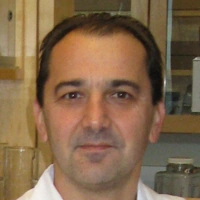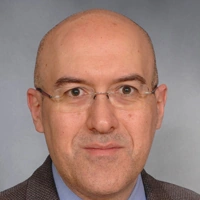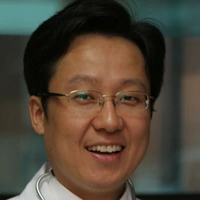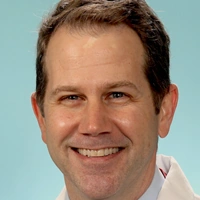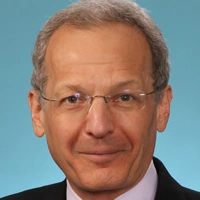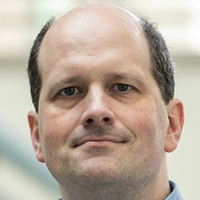 Dr. Hyun Kang has been appointed as the Editor-in-Chief of the Journal of Lipid and Atherosclerosis (JLA) by its editorial board, effective from the first issue of 2023. Currently serving as a Professor of Anesthesiology at Chung-Ang University School of Medicine, Dr. Kang is a distinguished medical doctor, researcher, and epidemiologist with expertise in medicine, statistics, and epidemiology.
Dr. Kang earned his MD from Chung-Ang University and obtained both a Master's degree and a PhD from the same institution. Additionally, he holds a bachelor's degree from Korea National Open University and an MPH degree from Korea University, School of Public Health, and is a PhD candidate at Korea University.
His professional journey includes roles as a clinical constructor, clinical assistant professor, assistant professor, and associate professor at Chung-Ang University. Dr. Kang has also been a visiting scholar at the University of Indiana School of Medicine, subsequently appointed as an adjunct professor at the same institution. Notably, he achieved early tenure professorship at Chung-Ang University.
Throughout his career, Prof. Kang has become a prominent expert in his field, contributing extensively to preclinical, clinical, and epidemiologic research. His publications in prestigious journals cover a wide range of topics, including epidemiology, biostatistics, systematic review and meta-analysis, material characterization, general anesthesia, lipid, and atherosclerosis.
In addition to his research contributions, Dr. Kang has served in various editorial roles, including Editor-in-Chief of the Journal of Lipid and Atherosclerosis and Anesthesia and Pain Medicine since 2023. He has also held positions such as Associate Editor-in-Chief of the Korean Journal of Anesthesiology (2020-2022) and Editor of several other journals: Section Editor (Since 2020) of Korean Journal of Pain: Editor (Since 2023) of Journal of Korean Medical Association: Editor (Since 2020) of Medicine: Editor (Since 2022) of Journal of Personalized Medicine: Associate editor (Since 2020) of Systematic Review: Editorial Board (Since 2020) of Biotechnology and bioprocess engineering: Statistical Editor (2021-2022) of Journal of lipid and atherosclerosis: Statistical Editor (Since 2021) of Journal of Educational Evaluation for Health Profession: Statistical Editor of Korean Journal of Anesthesiology (2010-2016): Statistical Editor (Since 2021) of Journal of Minimally Invasive Surgery. He also has worked as a reviewer for many leading international journals.
Dr. Kang's involvement extends beyond editorial responsibilities, as he has worked as a reviewer for numerous leading international journals, emphasizing his dedication to contributing to the academic community.
Dr. Hyun Kang has been appointed as the Editor-in-Chief of the Journal of Lipid and Atherosclerosis (JLA) by its editorial board, effective from the first issue of 2023. Currently serving as a Professor of Anesthesiology at Chung-Ang University School of Medicine, Dr. Kang is a distinguished medical doctor, researcher, and epidemiologist with expertise in medicine, statistics, and epidemiology.
Dr. Kang earned his MD from Chung-Ang University and obtained both a Master's degree and a PhD from the same institution. Additionally, he holds a bachelor's degree from Korea National Open University and an MPH degree from Korea University, School of Public Health, and is a PhD candidate at Korea University.
His professional journey includes roles as a clinical constructor, clinical assistant professor, assistant professor, and associate professor at Chung-Ang University. Dr. Kang has also been a visiting scholar at the University of Indiana School of Medicine, subsequently appointed as an adjunct professor at the same institution. Notably, he achieved early tenure professorship at Chung-Ang University.
Throughout his career, Prof. Kang has become a prominent expert in his field, contributing extensively to preclinical, clinical, and epidemiologic research. His publications in prestigious journals cover a wide range of topics, including epidemiology, biostatistics, systematic review and meta-analysis, material characterization, general anesthesia, lipid, and atherosclerosis.
In addition to his research contributions, Dr. Kang has served in various editorial roles, including Editor-in-Chief of the Journal of Lipid and Atherosclerosis and Anesthesia and Pain Medicine since 2023. He has also held positions such as Associate Editor-in-Chief of the Korean Journal of Anesthesiology (2020-2022) and Editor of several other journals: Section Editor (Since 2020) of Korean Journal of Pain: Editor (Since 2023) of Journal of Korean Medical Association: Editor (Since 2020) of Medicine: Editor (Since 2022) of Journal of Personalized Medicine: Associate editor (Since 2020) of Systematic Review: Editorial Board (Since 2020) of Biotechnology and bioprocess engineering: Statistical Editor (2021-2022) of Journal of lipid and atherosclerosis: Statistical Editor (Since 2021) of Journal of Educational Evaluation for Health Profession: Statistical Editor of Korean Journal of Anesthesiology (2010-2016): Statistical Editor (Since 2021) of Journal of Minimally Invasive Surgery. He also has worked as a reviewer for many leading international journals.
Dr. Kang's involvement extends beyond editorial responsibilities, as he has worked as a reviewer for numerous leading international journals, emphasizing his dedication to contributing to the academic community.
 Dr. Hyun Kang has been appointed as the Editor-in-Chief of the Journal of Lipid and Atherosclerosis (JLA) by its editorial board, effective from the first issue of 2023. Currently serving as a Professor of Anesthesiology at Chung-Ang University School of Medicine, Dr. Kang is a distinguished medical doctor, researcher, and epidemiologist with expertise in medicine, statistics, and epidemiology.
Dr. Kang earned his MD from Chung-Ang University and obtained both a Master's degree and a PhD from the same institution. Additionally, he holds a bachelor's degree from Korea National Open University and an MPH degree from Korea University, School of Public Health, and is a PhD candidate at Korea University.
His professional journey includes roles as a clinical constructor, clinical assistant professor, assistant professor, and associate professor at Chung-Ang University. Dr. Kang has also been a visiting scholar at the University of Indiana School of Medicine, subsequently appointed as an adjunct professor at the same institution. Notably, he achieved early tenure professorship at Chung-Ang University.
Throughout his career, Prof. Kang has become a prominent expert in his field, contributing extensively to preclinical, clinical, and epidemiologic research. His publications in prestigious journals cover a wide range of topics, including epidemiology, biostatistics, systematic review and meta-analysis, material characterization, general anesthesia, lipid, and atherosclerosis.
In addition to his research contributions, Dr. Kang has served in various editorial roles, including Editor-in-Chief of the Journal of Lipid and Atherosclerosis and Anesthesia and Pain Medicine since 2023. He has also held positions such as Associate Editor-in-Chief of the Korean Journal of Anesthesiology (2020-2022) and Editor of several other journals: Section Editor (Since 2020) of Korean Journal of Pain: Editor (Since 2023) of Journal of Korean Medical Association: Editor (Since 2020) of Medicine: Editor (Since 2022) of Journal of Personalized Medicine: Associate editor (Since 2020) of Systematic Review: Editorial Board (Since 2020) of Biotechnology and bioprocess engineering: Statistical Editor (2021-2022) of Journal of lipid and atherosclerosis: Statistical Editor (Since 2021) of Journal of Educational Evaluation for Health Profession: Statistical Editor of Korean Journal of Anesthesiology (2010-2016): Statistical Editor (Since 2021) of Journal of Minimally Invasive Surgery. He also has worked as a reviewer for many leading international journals.
Dr. Kang's involvement extends beyond editorial responsibilities, as he has worked as a reviewer for numerous leading international journals, emphasizing his dedication to contributing to the academic community.
Dr. Hyun Kang has been appointed as the Editor-in-Chief of the Journal of Lipid and Atherosclerosis (JLA) by its editorial board, effective from the first issue of 2023. Currently serving as a Professor of Anesthesiology at Chung-Ang University School of Medicine, Dr. Kang is a distinguished medical doctor, researcher, and epidemiologist with expertise in medicine, statistics, and epidemiology.
Dr. Kang earned his MD from Chung-Ang University and obtained both a Master's degree and a PhD from the same institution. Additionally, he holds a bachelor's degree from Korea National Open University and an MPH degree from Korea University, School of Public Health, and is a PhD candidate at Korea University.
His professional journey includes roles as a clinical constructor, clinical assistant professor, assistant professor, and associate professor at Chung-Ang University. Dr. Kang has also been a visiting scholar at the University of Indiana School of Medicine, subsequently appointed as an adjunct professor at the same institution. Notably, he achieved early tenure professorship at Chung-Ang University.
Throughout his career, Prof. Kang has become a prominent expert in his field, contributing extensively to preclinical, clinical, and epidemiologic research. His publications in prestigious journals cover a wide range of topics, including epidemiology, biostatistics, systematic review and meta-analysis, material characterization, general anesthesia, lipid, and atherosclerosis.
In addition to his research contributions, Dr. Kang has served in various editorial roles, including Editor-in-Chief of the Journal of Lipid and Atherosclerosis and Anesthesia and Pain Medicine since 2023. He has also held positions such as Associate Editor-in-Chief of the Korean Journal of Anesthesiology (2020-2022) and Editor of several other journals: Section Editor (Since 2020) of Korean Journal of Pain: Editor (Since 2023) of Journal of Korean Medical Association: Editor (Since 2020) of Medicine: Editor (Since 2022) of Journal of Personalized Medicine: Associate editor (Since 2020) of Systematic Review: Editorial Board (Since 2020) of Biotechnology and bioprocess engineering: Statistical Editor (2021-2022) of Journal of lipid and atherosclerosis: Statistical Editor (Since 2021) of Journal of Educational Evaluation for Health Profession: Statistical Editor of Korean Journal of Anesthesiology (2010-2016): Statistical Editor (Since 2021) of Journal of Minimally Invasive Surgery. He also has worked as a reviewer for many leading international journals.
Dr. Kang's involvement extends beyond editorial responsibilities, as he has worked as a reviewer for numerous leading international journals, emphasizing his dedication to contributing to the academic community.






